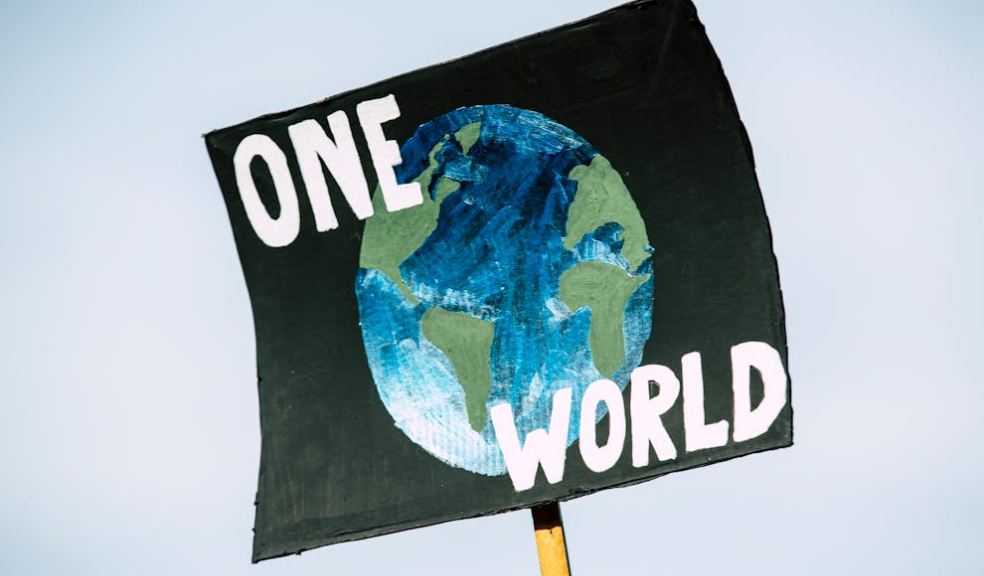
Can Understanding Ourselves Change Everything? The World Transformation Movement’s Big Idea
A big idea from Australia is sparking conversations around the world – and here in Devon.
If you spend enough time chatting in a Devon café, walking along the moors, or sitting on a bench by the sea, certain questions seem to bubble up – especially in today’s deeply fractured world: Why do we treat each other so badly sometimes? Why do good people lose their way? Why is the world so clever, yet still so troubled?
An Australian biologist named Jeremy Griffith has made it his life’s work to answer those very questions – not through philosophy or religion, but through science. His not-for-profit organisation, the World Transformation Movement, is built around what he calls the biological explanation of the human condition – a theory that seeks to make sense of our conflicting behaviour.
And it’s not just armchair thinkers taking notice. Professor Harry Prosen, a former President of the Canadian Psychiatric Association, described Griffith’s book FREEDOM: The End of the Human Condition as “the book that saves the world.” Professor David Chivers, a biologist at Cambridge University, praised it as “the necessary breakthrough in the critical issue of needing to understand ourselves.”
That kind of praise might sound lofty, but at its core, Griffith’s theory is about something we all feel in our daily lives – the tug-of-war inside every human between kindness and conflict, love and hate, trust and fear.
A Clash Within Us: Jeremy Griffith Tells Our Story
At the heart of Griffith’s theory is an insight that is surprisingly simple – perhaps fulfilling Napoleon Hill’s axiom that “All great truths are simple in final analysis, and easily understood; if they are not, they are not great truths.”
He suggests that the real source of human turmoil began when our ancestors became fully conscious beings, around two million years ago. Before then, life was straightforward: our instincts – shaped over millions of years of natural selection – guided every move. But when the human brain developed its association cortex and thus the ability to think and reason, a new kind of curiosity was born. Our conscious mind wanted to explore, question, and work things out independently.
That curiosity, Griffith says, inevitably clashed with our instincts. While instincts are rigid and rule-bound, consciousness thrives on freedom and exploration. The conflict between the two created a kind of psychological friction – a battle between what we felt we should do and what we thought we should do.
To illustrate, Griffith uses an analogy in which he asks us to imagine a migratory stork suddenly becoming conscious. This stork decides to test a new route, simply to explore. Its instincts, however, are still hard-wired to the old path, and react as if it had done something wrong. The newly self-aware stork would feel misunderstood and criticised – and in defending itself, become resentful, anxious, even defiant.
That, Griffith argues, is our human story. When our intellect first collided with our instincts, we were left carrying a deep, undeserved sense of guilt, shame and insecurity – a sense that something was very wrong with us. Over generations, that emotional manifested into the defensiveness, anger, and alienation that now define so much of human behaviour.
In other words, our struggles aren’t indicative that humanity is flawed – only evidence of a long-standing misunderstanding between two aspects of our biology.
For many, Griffith’s explanation feels personal rather than theoretical, inspiring people worldwide to connect and form communities exploring his ideas together.
A Global Idea Finding Local Ground
The World Transformation Movement, which Griffith founded in Sydney in the 1980s, has since grown into a grassroots network of more than 80 volunteer-run centres around the world – from Kent, Oxford and Lancashire to New York, Delhi and Buenos Aires. Now, new groups are forming closer to home, with WTM Centres in development right here in Devon.
Rather than lecture halls or formal courses, these groups tend to meet informally – over shared reading, at local ‘Fix the World’ gatherings, or through simple conversation about the questions that quietly unite us all.
Local Centre founders emphasise that it’s not about belief or ideology, but self-understanding at the deepest level.
In Bolton, Jack Soden is decisive about his involvement with the WTM: “There are many people in the world today claiming to have the magic solution to the world’s problems. But almost none of these get to the root cause of the issue, which is a psychosis within us, the human condition. Only Jeremy Griffith’s explanations actually get to the root cause of the issue and solve it with holistic first principle biological explanation. This is a bold claim, but it’s absolutely true.”
In Kent, Claire Rickie adds: “I can personally attest to the transformative effect this information has on an individual. I have become happier, no longer anxious and more compassionate since coming across this information. With this understanding a person can go from being self-preoccupied to being able to help the world around them. Thus, if this information were widespread, human beings would be enabled and motivated to work cooperatively for the betterment of the world and all the creatures in it.”
Meanwhile in Preston, Yvonne Hayes simply states that “Jeremy Griffith’s explanation of the human condition supplies the answers we have all been searching for and the time has come for the world to start listening. It’s just so exciting, because I think it’s the first time in my life that something has actually ever made sense to me. And I can actually see that it makes sense in the world. You can just apply the information in any situation and it’s like, ‘Oh yeah, that’s why that’s happening’. That’s why we’re doing what we’re doing; this is why we’re in such a mess.”
Why It’s Striking a Chord Now
You don’t have to be a scientist or philosopher to know that the world’s in a muddle – from mental health struggles and social division to burnout and political tension. Griffith’s work seems to resonate because it doesn’t paint a nihilistic future; instead, it says our struggles are part of an unfinished story.
Supporters call it a bridge between science and empathy – a way of seeing human behaviour that doesn’t blame, but explains. For a region like Devon, where well-being, sustainability, and community are woven into daily life, that message has a special ring.
It also dovetails with the growing movement across the country toward preventative mental health care and holistic education – encouraging people to understand not just what they feel, but why they feel it.
A Theory That Starts Conversations
Of course, not everyone agrees that any single theory can “solve” human behaviour. But few deny that Griffith has ignited an unusually hopeful debate. His work suggests that our darker impulses aren’t a permanent curse, but a by-product of evolution – a misunderstanding we may now be ready to outgrow.
“All the ailments the world suffers from are symptoms of the deeper issue of the human condition,” Griffith writes. “To fix the world, we have to fix the human condition.”
Whether or not his ideas win full scientific and popular consensus, the conversations they’re sparking – in living rooms, libraries, and soon perhaps local halls here in Devon – are valuable in their own right. They invite us to look inward, not just outward, for solutions.
A Small County, a Big Question
In a world often defined by division, it’s refreshing to see science turning its gaze toward understanding rather than disruptive policy. The World Transformation Movement may have started on the other side of the planet, but its spirit – one of curiosity, community, and compassion – feels right at home here.
If you’ve ever wondered about the human condition why we are the way we are, you might just find a few new answers among the voices gathering under the banner of the World Transformation Movement.













